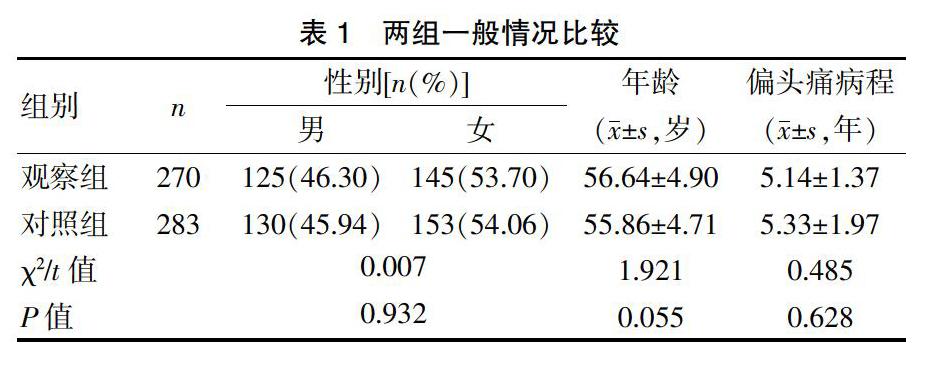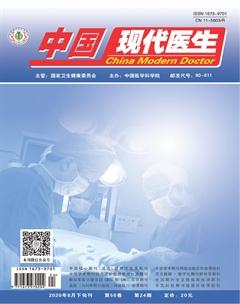基于問題導向式健康教育在耳穴壓豆后皮膚損傷中的觀察及護理干預
孫利華 張華


[摘要] 目的 探討基于問題導向式健康教育在預防無先兆偏頭痛患者耳穴壓豆后皮膚損傷中的護理效果。 方法 選取2015年1月~2018年12月在本院耳穴門診接受治療的556例無先兆偏頭痛患者為受試對象,按照就診時間順序將2015年1月~2016年12月的286例作為對照組,2017年1月~2018年12月就診的270例設為觀察組。兩組患者均給予耳穴壓豆治療,每周1次,治療10次為一個療程,對照組予以常規健康教育,觀察組在對照組基礎上給予問題導向式健康教育,一個療程結束后比較兩組患者耳部皮膚損傷并發癥發生率、治療依從性及滿意度情況。 結果 觀察組270例完成治療,對照組286例3例脫落,最終283例獲得有效數據,對照組35例患者發生皮膚損傷并發癥,發生率為12.37%,治療依從性從93.29%降至90.81%,患者滿意度為93.29%;觀察組8例患者發生并發癥,發生率為2.96%,耳穴壓豆依從性從92.59%升至96.67%,患者滿意度為97.78%;兩組患者并發癥發生率、治療依從性、滿意度比較,差異有統計學意義(P<0.05)。 結論 基于問題導向式的健康教育能降低耳穴壓豆后皮膚損傷并發癥,提高治療依從性,提高患者滿意度,值得臨床推廣應用。
[關鍵詞] 偏頭痛;耳穴壓豆;皮膚損傷;健康教育
[中圖分類號] R473.2 ? ? ? ? ?[文獻標識碼] B ? ? ? ? ?[文章編號] 1673-9701(2020)24-0154-04
[Abstract] Objective To explore the nursing effect of problem-based health education in the prevention of skin damage after auricular acupressure in patients with migraine without aura. Methods 556 migraine patients without aura who were treated in our ear acupuncture clinic from January 2015 to December 2018 were selected as the test subjects. According to the order of treatment time from January 2015 to December 2016, a total of 286 patients were selected as the control group, and 270 patients who visited the hospital from January 2017 to December 2018 were set as the observation group. Patients in both groups were treated with ear acupoint bean pressing, once a week, with 10 times as a course of treatment. The control group was given regular health education, and the observation group was given problem-oriented health education on the basis of the control group. The incidence of complication of ear skin injury, treatment compliance and satisfaction of patients between the two groups were compared after one course of treatment. Results 270 cases in the observation group completed the treatment. 3 cases of 286 patients in the control group fell off. Finally, 283 cases obtained effective data. The 35 patients in the control group developed skin injury complications, with the incidence rate of 12.37%, treatment compliance decreasing from 93.29% to 90.81%, patient satisfaction of 93.29%. 8 patients in the observation group had complications, with the incidence rate of 2.96%, the compliance of auricular acupressure from 92.59% to 96.67%, and patient satisfaction of 97.78%. There were significant differences in the incidence of complications, treatment compliance, and satisfaction between the two groups(P<0.05). Conclusion Problem-based health education can reduce the complications of skin damage after ear acupoint bean pressing, improve treatment compliance, and improve patient satisfaction, which is worthy of clinical application.

